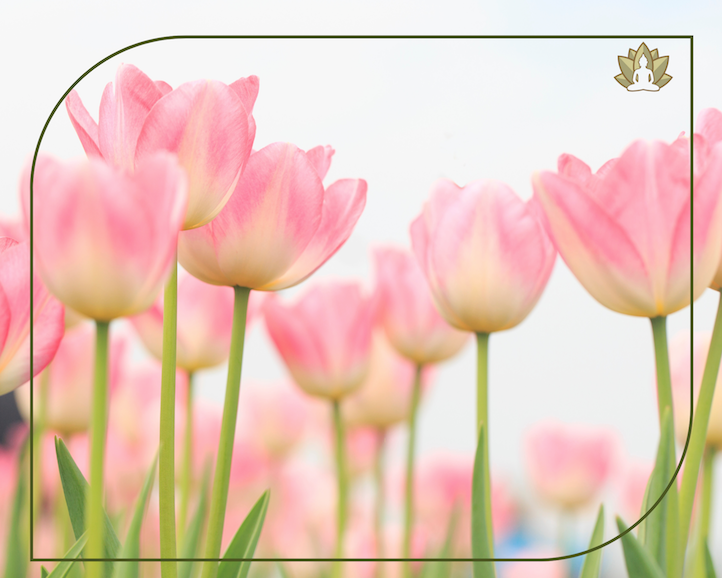
Days are getting longer, Sunlight is gradually returning after the dark, gloomy, cold winter! After fighting the cold all winter long, your body is usually not ready for the rise in temperature. Although we welcome the warm sunny days in spring, but it could also bring with it congestion and upper respiratory conditions for some of us!
Now we all love to eat during winters and tend to put on an extra layer of fat. This fat (kapha) actually insulates our body from the cold all winter long. As our body prepares for warmer weather, i.e. the spring season, all that accumulated fat (kapha) melts & thickens the blood, creating blood congestion. You might notice your heart racing, or increase in blood pressure and a squeezing sensation in the chest as congested blood puts strain on circulation. Some of us might get those symptoms of sinus congestion, runny nose or stuffy nose! Some might even notice a constant drip in the back of the throat, and pressure in the ear canal.
Kapha types are the most sensitive to the changes in spring season as they already tend toward excess water retention, mucus and congestion. Over the winter a buildup of fats and stagnant circulation solidifies Kapha in the body. But when the season begins to change and the temperature begins to rise, this excess Kapha begins to melt, resulting in a sort of opening of the flood gates. Congestion, phlegmatic nausea, loss of appetite and general malaise can all bother Kapha individuals at this time of year. Kapha dominant individuals must flush congestion and excess with warming spices, diuretics, diaphoretics and exercise. Bitter foods and herbs are useful in drying up the excess moisture. Things like raw radishes, ginger and garlic, and other sharp bitters improve body’s ability to metabolize these fats, and keep blood flowing.
Pitta dominant individuals must also avoid fried food and alcohol to support their liver as much as possible at this time of the year. Bitter herbs and foods aid in cleansing liver heat.
Vata types welcome the warmth and moisture of Spring. But they must bring layers along as temperatures have the potential to shift widely in the spring.
So now you know that …Of the three doshas—Vata, Pitta, and Kapha—it’s the kapha dosha that is dominant in the universe as well as in our bodies during spring. To enjoy a healthy spring, we need to understand the kapha dosha and keep it in balance. If you are new to Ayurveda please take up our short online course on “What’s your Dosha?”
Kapha is the biological humor or the force that gives the power of adhesion, i.e. keeping things together! It is primarily composed of the elements water & earth. It provides lubrication to the joints, as well as mucus to protect the sensitive tissues. When kapha is in balance, you feel strong, calm, composed, and stable. When it’s out of balance, you feel lethargic, sedentary and sleepy. At the mental level, you feel dull or depressed. You may also experience excess phlegm in the lungs or sinuses, nausea, unhealthy weight gain, water retention, or heaviness in your limbs. It’s especially important to balance kapha in the spring, because kapha accumulates during late winter and can create diseases by the time spring arrives.
According to the principles of Ayurveda, a healthy digestive agni, or “fire,” is key to good health. Agni gives us the power to digest the food we eat as well as our sensory impressions, thoughts, and feelings and what we take in through the five senses. Strong agni prevents us from developing AMA (toxins in the body). These toxins actually are the true cause of weak immunity, inflammation, general fatigue and depression. If left unchecked, it can lead to more serious conditions in the body. The recipe for balancing kapha includes keeping your Agni alive and strong! To learn all about Digestion and how to keep your digestive fire ( AGNI) alive, please take our self-paced online course “The Digestion – Immunity Connection”
Here are some of Ayurvedic recommendations for the spring season….
Focus on lighter meals…..
The most important way to ensure a healthy agni is to eat light, easy-to-digest foods during spring and wait at least three to four hours between meals. Eating at regular intervals with adequate time between meals strengthens the mind and the body.
Avoid foods that increase kapha—dairy products, iced or cold food or drinks, and fried or oily food—especially in the morning and at dinner.
Consider a dietary cleanse. A strict fast is not appropriate for all! Depending on your prakruti (your unique mind body constitution), spend one day a week eating only fresh fruits and vegetables or just be on a khichari cleanse. This is the right way to do a cleanse as per Ayurveda. This will improve your digestive fire and eliminate Ama (toxins). During your cleanse, you can also drink herbal teas made with cinnamon, black pepper, and ginger. These herbal teas are beneficial for your digestive and circulatory systems and help expectorate excess mucus.
Bitter greens like dandelion leaves, arugula, spinach, mustard greens, diuretics like celery, pungent spices such as cayenne, and mild laxatives like aloe vera can break up congestion, reduce fats in the blood, and drain excess water retention.
Be active….
Spring time is Kapha time, which is slow and sluggish and can make us feel sedentary but all my Ayurveda students know that we need to do the opposite to keep things in balance- remember… “Like increases like and opposites balance”! To boost up your willpower and get up and get moving, all you have to do is look around to be inspired at this time of year. There are signs of renewal and transformation all around us. The nature itself is going through a rebirth. So be in sync with nature. Start your day with Sun Salutations! Head outdoors for a nice morning walk. And appreciate the fresh aroma of renewal of natural beauty around you. Appreciate the beautiful transformation that’s happening around & fill yourself with inspiration, energy, and light.
Spring clean & declutter…
One of the qualities of kapha dosha is that it holds on to things. Therefore, to keep kapha in check during the spring season it is important to do the opposite. It’s time to spring clean. Let go of the things as well as emotions that do not serve you any good. It is time to simplify your life to include only those things that truly revitalize your body and soul. Clean your house of any unwanted clutter and donate! Also clean your body by eating light, simple & easy to digest meals.
Breathe…..
Breathing exercises (pranayama), such as Bhastrika, Kapalabhati and Anulom Vilom can flush out heaviness from the chest & keep your head and lungs clear.
Quick tips….
- Rise early-Just as the sun is rising earlier, so should you. Shift your waking time to just before sunrise.
- Exercise is critical this time of year to shed your winter layer of fat and prevent congestion.
- Use neti pot daily upon waking to encourage excess Kapha to flow out of the body.
- Avoid daytime naps as they increase Kapha in the body.
- Continue to get to bed by 10 pm, though this is the time of year when the body actually needs the least amount of rest.
- This is the best time of the year to enjoy salads. Aside from increasing prana, bitter greens have the added benefit of gently cleansing your liver.
- You may find yourself craving spicy foods. Listen to what your body is trying to tell you! Give in to those intelligent cravings! Pungent spices like chili and cayenne open up your airways and flush excess Kapha out of the body. Add black pepper, cinnamon, and ginger to your teas and cooking. Pitta dominant individuals need to be a bit mindful of not to overdo pungent spices.!
- Include broccoli, cauliflower, cabbage and brussel sprouts. They are excellent for balancing kapha. Vata types should cook these and add plenty of oil and digestive spices.
- Include beans & lentils as their astringency helps reduce Kapha. Try sprouts.
- Herbal tea such as Holy Basil / Tulsi is ideal for clearing excess Kapha from the respiratory tract and has the added benefit of gently kindling digestion (agni).
- CCF tea is excellent for reducing water retention in the body. Cumin, coriander, fennel seeds are known for their detoxifying properties and digestive support.
- Unhealthy diet, improper food combinations, an unsupportive lifestyle, emotional disturbances, environmental influences can upset our Doshas! If we learn to recognize and address imbalances in our Doshas relatively quickly, the effects need not be long lasting. Otherwise, they will undoubtedly lead to ill health and disease!
Craving for more……
Check out all of OUR SELF-PACED ONLINE COURSES that include a perfect blend of Holistic Nutrition and ancient Ayurvedic wisdom!
- THE COMPLETE GUIDE TO STRESS MANAGEMENT
- THE COMPLETE MASTERCLASS ON THE ART OF LIVING
- TAKE CONTROL OF YOUR BLOOD SUGAR NATURALLY
- THE COMPLETE GUIDE TO MENOPAUSE
- THE COMPLETE GUIDE TO MANAGING BLOOD PRESSURE NATURALLY
- BASICS OF HEALTHY EATING
- DIGESTION- The Key to good Health!
- MANAGE BACK PAIN USING DIET & LIFESTYLE
- WHAT’S YOUR DOSHA?
- BASICS OF AYURVEDA
- THE SCIENCE BEHIND MENOPAUSAL SYMPTOMS!
- FOODS FOR BALANCING HORMONES!
- LIFESTYLE SOLUTIONS TO MENOPAUSAL SYMPTOMS!
SPRING SALE: 75% OFF on any of our online courses!
USE CODE: WELCOMESPRING
NAMASTE,

Preeti Syal
M.Sc., R.H.N., Certified Ayurvedic Lifestyle Consultant
The content provided in my blogs are for knowledge sharing purposes only and is not intended to be a substitute for professional medical advice, diagnosis or treatment.


